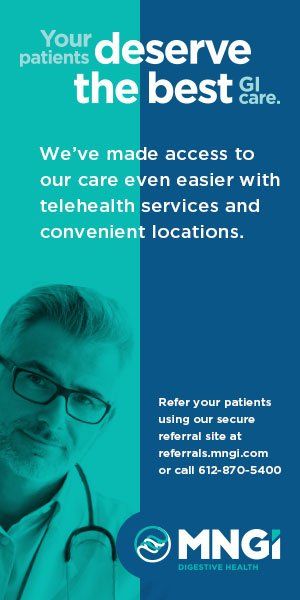ecently, we received a call from a local oncologist asking for help with a 59-year-old man who was suffering from stage 4 metastatic colon cancer. The patient was undergoing chemotherapy to treat his cancer, but was experiencing severe, intractable lumbosacral pain from spinal metastasis. He was admitted to the hospital because pain could not be controlled with systemic opioids at home. As an inpatient, he received high dose, intravenous opioids around the clock, which reduced his pain but caused him to be drowsy and unable to interact fully with his family. Every time the IV opioids were reduced, pain returned with a vengeance. The patient, his family and the attending physicians were all frustrated and at a loss for what to do next. The oncologist asked us if there were any treatment options that would allow this patient to live comfortably at home, interact with his family members and continue his chemotherapy treatments.
Oncology
Cancer pain management
Effective solutions for challenging cases
By R. Scott Stayner, MD, PhD and David Schultz, MD
As anesthesiology pain specialists, we understand the power of epidural infusions to block pain–think labor epidural–and we recommended the patient be discharged from the hospital and sent directly to our pain clinic to implement spinal pain relief. On arrival, we placed an epidural catheter and administered spinal bupivacaine and fentanyl. As expected, lumbosacral pain was relieved within minutes, and the patient’s entire demeanor changed for the better. The epidural injection also served to meet the insurance requirement for a trial prior to permanent implant of a pain pump, and we set about obtaining payor authorization to proceed with implant surgery.
We continued the labor epidural in the home setting, obtained insurance authorization and proceeded with a surgical pain pump implant several days later. The surgery was completed in a 30-minute operation in an outpatient ambulatory surgery center. At the follow-up appointment one week later, the patient reported much improved pain relief on much lower doses of oral opioids. He told us that the therapy was a game changer because he had less pain and was more alert. His daughter declared, “You gave me my dad back!” The patient has been able to return to full-time work and has not been admitted to the hospital for pain control since the pump was implanted. A nurse goes to his home to refill the pain pump every 6-8 weeks, so he does not have to travel to our clinic for pain treatments.
Only about 50% of patients with cancer pain seek pain relief.
A similar case involved a 51-year-old female with stage 4 metastatic esophageal cancer with liver metastasis who was referred to us because she had been continuously hospitalized for pain management. We discussed various treatment options with her by phone, including a pain pump. She was desperate to try the pain pump, so we arranged for her to be transferred directly from the hospital to our clinic. We placed a temporary epidural catheter in the outpatient pain clinic, injected epidural bupivacaine and fentanyl to achieve immediate pain relief and continued epidural analgesia at her home. She reported 75% pain relief with the temporary catheter and returned the following day for a permanent pain pump implant. She achieved good pain relief initially after the implant, but developed nausea and vomiting during the second week of post-implant which sent her to the emergency department. One of our implant nurses met her at the hospital to adjust the pump medication, which successfully resolved nausea. Once her side effects were controlled, she experienced excellent pain relief and has been able to manage at home without further hospitalization for pain control.
Improving outcomes
Cancer-related pain affects 60-70% of people with diagnosed cancer, and 70-80% of cancer patients live in fear of escalating pain. Although 90% of cancer pain can be managed, only about 50% of patients with cancer pain seek pain relief. Patients cite various reasons for not seeking specialized treatment to alleviate cancer pain, which include guilt that visiting a pain specialist will offend their caregivers, fear that acknowledging pain equates to admitting curative treatments are not working, acceptance that pain is just part of having cancer, fear of addiction, general stoicism and feelings of being too overwhelmed with other aspects of treatment.
Receiving the diagnosis of cancer often triggers feelings of anxiety and depression. These emotions can stem from a sense of loss of control, unpredictable future and stress associated with needing to make complicated decisions regarding treatments in addition to other daily responsibilities. Pain is yet another burden that can interfere with the body’s ability to mount an attack on the cancer cells and respond to treatments.
Recent data published by cancer pain specialists, Lisa Stearns, MD, and others, suggest that adequate treatment of cancer pain not only provides greater patient comfort, but may result in heightened cancer treatment success and improved life expectancy. Many experts believe the stress of pain in addition to other physical and psychological stress associated with cancer may weaken the body’s ability to eradicate malignant cells. Suitability for ongoing, potentially curative medical treatments, such as chemotherapy, is often dependent on the patient’s overall health, and adequate pain control may help patients tolerate vigorous cancer therapy.
Cause and effect
Cancer pain can result from the cancer itself or from treatments used to cure cancer. As a tumor grows, it can push on other organs or nerves and cause pain. If the cancer cells spread to other organs, such as bone, pain can be felt in the area invaded by tumor cells. Many cancers spread to the bones in the back, hips and pelvis, so these are common locations for cancer-related bone pain. Treatments such as radiation therapy, chemotherapy and surgery can also result in pain even if the cancer is being effectively treated. Radiation and chemotherapy can damage peripheral nerves, which may manifest as burning, tingling, numbness and sometimes pain to light touch in the extremities. This can exacerbate pain from post-surgical treatments such as tumor resection and debulking.
We can provide significant help to cancer pain patients.
Various treatments can be used to alleviate cancer pain. Routine pain clinic procedures like epidural steroid injections can be used to treat pain made worse by intraspinal inflammation. If a tumor is pressing on a nerve in the spine, the nerve will often become inflamed, which results in pain. An epidural steroid injection delivers steroid directly to the inflamed nerve and can significantly reduce pain.
In some patients, tumor cells migrate to the spinal vertebral bones, and tumors will start to grow. Radiation oncologists can treat such spinal tumors by administering targeted radiation to kill the cancer. However, this process can render the bones weak and result in painful fractures–similar to fractures that some people with osteoporosis suffer. Pain physicians can stabilize the damaged vertebral bone with cement in a procedure called kyphoplasty. This treatment stabilizes and strengthens the damaged bone which can immediately stop back pain. If there is still a tumor present, prior to placing the cement, the tumor can be ablated using heat to reduce tumor size or prevent the cancer from spreading to other tissue.
If the nerve or nerve communication center is transmitting a pain signal from a cancer-ridden organ, the nerve or nerves can be destroyed using heat or chemicals such as alcohol. This process is called nerve ablation. This treatment is especially helpful for patients suffering from cancer pain from internal organs such as in pancreatic cancer. In the well-selected patient, nerve destruction can provide relief from pain during the final months of their disease.
We can also deliver gentle electric pulses to the pain processing centers of the spinal cord to block or alter pain signals to the brain. Patients can trial this treatment, called neurostimulation, before deciding whether to have a permanent neurostimulator implanted. We consider this therapy to be a ‘pacemaker for the nervous system’ since the technology has evolved from cardiac pacemakers. Neurostimulation is especially effective for nerve pain caused by cancer treatments, such as radiation therapy and chemotherapy, and the permanent implant involves a minimally invasive 45-minute surgery done in an outpatient surgery center.
Targeted Drug Delivery (TDD), with pain-relieving medications delivered directly into the intrathecal space, is a powerful tool in the fight against cancer pain. Fully implanted pain pumps can deliver medications, such as opioids and local anesthetics, directly to the spinal nerves that transmit pain signals from invasive cancer to the brain. This allows for better pain control than systemic opioids with much less impact on cognition. If the pain pump is implanted in the early stages of cancer pain and treatment, the patient can recover quickly from the minor surgery associated with the implant and engage more effectively in therapy. TDD may also help patients hospitalized for cancer pain management be discharged from the hospital and managed at home. If a patient’s cancer pain resolves, the pain pump can easily be removed depending on the patient’s wishes. However, patients who recover from cancer often have persistent pain, and in such cases, the pain pump can be used to provide ongoing pain relief. We occasionally use the pain pump in addition to spinal cord stimulation to treat complex cancer pain, since both technologies block pain at the spinal cord level by different and synergistic mechanisms.
Educating patients and physicians
Nura's pain specialist physicians have been treating patients with cancer pain since the inception of our pain clinic in 1995, but referrals for cancer pain management have been few and far between. With advanced technology and our pain management expertise, we believe we can provide significant help to cancer pain patients and to the oncologists who care for them. Therefore, we are making a concerted effort to educate cancer patients and their managing physicians about cancer pain options, and we are available anytime for informal discussions. Our pain specialists are available to evaluate and treat cancer pain patients on an urgent basis, usually within 24 hours of referral, and our entire medical practice is committed to providing timely, effective and quality care to patients who are suffering from cancer-related pain.
R. Scott Stayner, MD, PhD, is the Medical Director of Nura Ambulatory Surgery Centers. He is board certified in anesthesiology and pain management. He completed his anesthesiology residency at the University of Minnesota, his Fellowship in Pain Management with the University of California, Davis, and is a graduate of the University of Minnesota Medical School. He earned a PhD in Bioengineering from the University of Utah.
David Schultz, MD, is the medical director and founder of Nura Pain Clinics. Dr. Schultz is a board-certified anesthesiologist with additional board certification in pain medicine from the American Board of Anesthesiology, the American Board of Interventional Pain Physicians, and the American Board of Pain Medicine. He has been a full-time interventional pain specialist since 1995.
MORE STORIES IN THIS ISSUE














